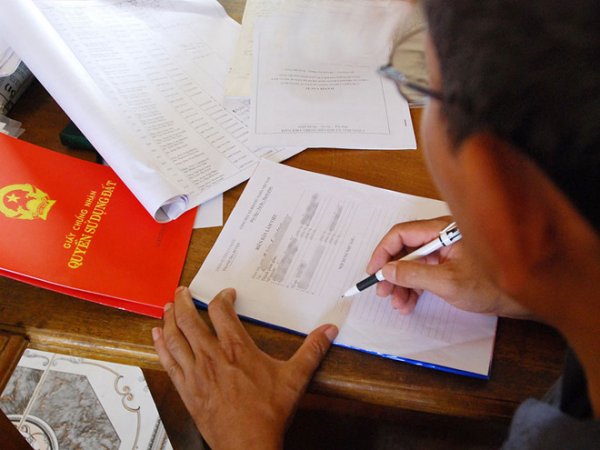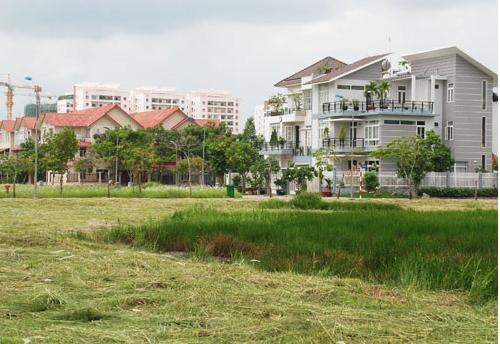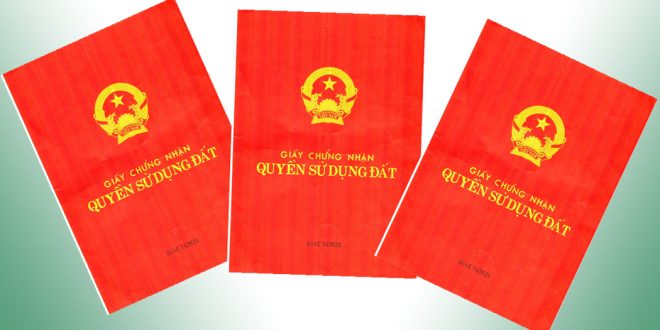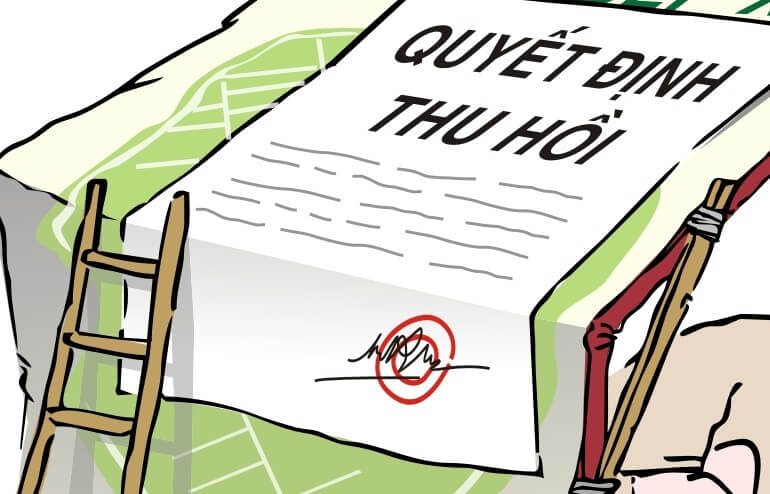Vietnam: Is it possible to specify names of family members in land use right certificates?
Certificate of land use right (colloquially called "red book" due to the red covers) is a legally valid document that establishes the relationship between the state and the land user regarding rights and obligations in land use. A closely related term is the house ownership certificate (commonly known as the "pink book"). Unlike most countries in the world, the Constitution of Vietnam stipulates the regime of collective land ownership, with the state being the sole and absolute representative subject of land ownership rights.
Regarding the information on names of household members specified on the land use right (LUR) certificate, according to Clause 5 Article 6 in Chapter III of Circular No. 33/2017/TT-BTNMT of the Ministry of Natural Resources and Environment of Vietnam regarding specifying information on names of household members on LUR certificate: “In case of a household using land, specify “Hộ gia đình, gồm ông” (“Household, including Mr.”) (hoặc “Hộ gia đình, gồm bà”) (or “Household, including Mrs.”), full name, date of birth, name and number of householder’s identity documents according to Point a of this Clause; permanent address of the household. If the householder does not share a piece of land of the household, specify the name of representative who is another member of household sharing a piece of land of the household. On the next line, specify “Cùng sử dụng đất, cùng sở hữu tài sản gắn liền với đất (or Cùng sử dụng đất or Cùng sở hữu tài sản) với …(“share a piece of land or properties on land (or share a piece of land or properties) with... (specify full names, date of birth and number of identity documents of the remaining members having the same right to share a piece of land and properties on land).”
Currently, there are various opinions regarding the regulation of specifying information on LUR certificates for households. Some argue that all household members' information should be specified, similar to the information in the household registration book. According to the provisions of the Residence Law, the household registration book is an administrative document that manages the residence and place of habitual residence of individuals. It is issued to households or individuals who have registered their habitual residence and serves as proof of their place of habitual residence.
In the household registration book, a household consists of individuals who share the same registered address, but it does not have any legal implications regarding the ownership of shared assets, such as in the context of civil law or land use rights under the Land Law.
Traditionally, in most transactions, especially those between individuals and state agencies or organizations, the household registration book has been used as a basis. Therefore, specifying the names of all household members, similar to the household registration book, is considered reasonable.
After studying Circular No. 33/2017/TT-BTNMT, we found that the regulation for specifying the names of household members on LUR certificate includes recording the name of the head of the household (or representative) and "the remaining members having the same right to share a piece of land and properties on land". Members who are listed in the household registration book but do not have shared land use rights are not included in the land use rights certificate. According to Clause 29 Article 3 of the Land Law, “land-using household” means those who share a marital, family or foster relationship as prescribed by the marriage and family law, are living together and have joint land use rights at the time of being allocated land or leased land, or having land use rights recognized by the State; or acquiring land use rights.
Therefore, the provisions of Circular No. 33/2017/TT-BTNMT have made the recognition of land use rights by the state more transparent and clear. They prevent unauthorized alterations, erasures, or transfers of land use rights that could affect the rights and interests of other members who share the land use rights. Concurrently, LUR certificates will only include the complete names of household members who share the land use rights and ownership of land-related assets. This regulation only applies to cases where the land is "owned by the household," meaning that the property is determined to be jointly owned by multiple individuals within the household. When registering to obtain the LUR certificate, the household has the right to negotiate among themselves regarding the recording of household members' names on the certificate.
From the above analysis, we can see that the provisions in Circular No. 33/2017/TT-BTNMT regarding the specifying of information on LUR certificates play an important role in improving the quality of land management and use in our country.
According to the People’s Court Magazine
- Key word:
- Decree No. 01/2017/ND-CP
- Number of deputy directors of departments in Vietnam in accordance with Decree 45/2025/ND-CP
- Cases ineligible for pardon in Vietnam in 2025
- Decree 50/2025 amending Decree 151/2017 on the management of public assets in Vietnam
- Circular 07/2025 amending Circular 02/2022 on the Law on Environmental Protection in Vietnam
- Adjustment to the organizational structure of the Ministry of Health of Vietnam: Certain agencies are no longer listed in the organizational structure
- Vietnam aims to welcome 22-23 million international tourists in Vietnam in 2025
-

- Vietnam: Procedures for selling and buying assets ...
- 14:23, 11/09/2020
-

- Vietnam: Summary of documents required for the ...
- 09:30, 16/04/2020
-

- Vietnam’s new regulations regarding the issuance ...
- 11:07, 30/10/2018
-

- Vietnam: Documents equivalent to the Land Use ...
- 12:25, 28/09/2018
-

- Vietnam: Land expropriation due to failure to ...
- 15:49, 13/05/2018
-

- Notable new policies of Vietnam effective as of ...
- 16:26, 11/04/2025
-
.Medium.png)
- Notable documents of Vietnam in the previous week ...
- 16:21, 11/04/2025
-
.Medium.png)
- Notable documents of Vietnam in the previous week ...
- 16:11, 02/04/2025
-
.Medium.png)
- Notable new policies of Vietnam to be effective ...
- 16:04, 02/04/2025
-
.Medium.png)
- Notable new policies of Vietnam effective from ...
- 14:51, 21/03/2025
 Article table of contents
Article table of contents
